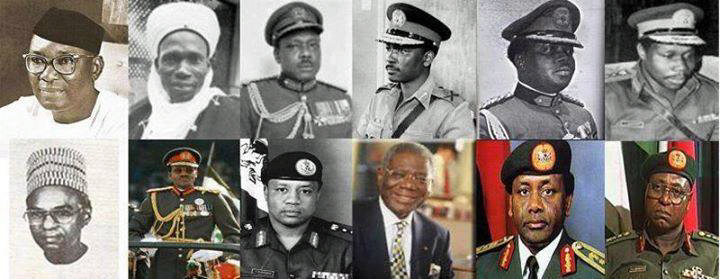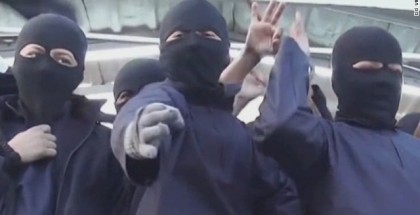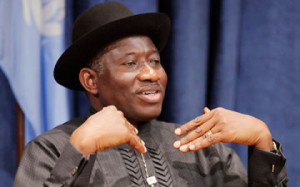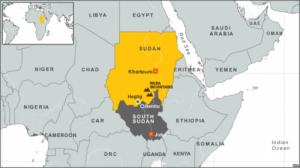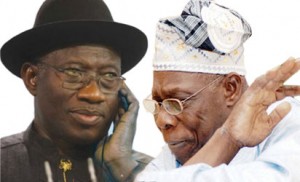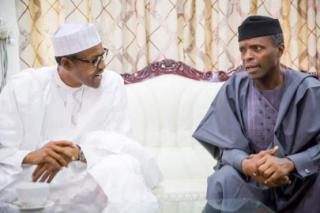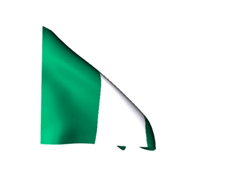The History Of Nigeria’s Leaders Since Independence
Enjoy The History Of Nigeria’s Leaders Since Independence
Nigeria’s independence from Britain in 1960 meant Nigeria would for the first time have an all Nigerian cabinet and executives. It was fair enough to retain the British parliamentary system having been what we were used to therefore, Sir Abubakar Tafawa Balewa whose party won the 1959 elections was the prime minister and Dr. Nnamdi Azikiwe was appointed to represent the queen as the head of state. Nigeria was originally divided into three autonomous regions; Western, Eastern and Northern regions, Samuel Ladoke Akintola was premier of Yorubas, Michael Okpara was premier of the Igbos and Amadu Bello was premier of Hausa/Fulani respectively. They all vowed; although tongues differ, united we stand
On October 1st 1963, Nigeria became a federating state by breaking ties with Britain meaning the queen would seize to be the head of state, allowing Dr Nnamdi Azikiwe to become Nigeria’s first president. His roles though were mostly ceremonial due to limited powers conferred on him.
On January 1966, a failed coup d’état led by Chukwuemeka Nzeogwu had prime minister Tafawa Balewa, Amadu Bello and Ladoke AKintola all assassinated on 15 January 1966. Michael Okpara was not killed but detained. General Aguiyi Ironsi made a counter coup which captured Nzeogwu. Nzeogwu was imprisoned following his arrest.
These activities made northerners to raise eyebrows as Tafawa Balewa and Amadu Bello were assassinated, But Dr Nnamdi Azikiwe and Michael Okpara were not assassinated which one can say it was because they were Igbos because the original and counter coups were carried out by Igbos who were the beneficiaries of the coups. In light of this, a pogrom soon started in the north where Igbos were targeted and murdered, a primary cause of 1967 Biafran secession fronted by Col. Odumegwu Ojukwu.
Aguiyi Ironsi somehow ended the regional government with the introduction of unitary system, he was soon murdered by group of northern army officer in July 1966, Yakubu Gowon was appointed the head of new military government. Yakubu Gowon would rule for approximately nine years, he fought and won the gloomy Biafran war, during latter part of his tenure, the problem Nigeria had was not that of lack of money, but how to spend it due to oil boom, crude oil prices went up to about 325%, Nigeria became rich and underwent series of development; such as building international terminals at Lagos airport (modelling it after Amsterdam’s Schiphol Airport), National stadium Lagos, national arts theatre, Lagos and countless of flyovers over Lagos lagoon.
This attracted world leaders to Nigeria, especially Jimmy Carter (former US president who became a good friend of Obasanjo), incidentally, Gowon was disposed by Gen. Murtala Muhammed in 1975 by a coup, Murtala whose deputy was Obasanjo formed a federal military government which he headed but to be assassinated on February 13, 1976 by yet another coup led by Lieutenant Colonel Dimka. The coup against the government of Gen. Murtala Mohammed who was assassinated alongside his Aide Lieutenant Akintunde Akinsehinwa, as well, his driver when his official Mercedes-Benz was ambushed in Ikoyi, Lagos was abortive.
It wasn’t successful because forces loyal to the government retaliated, in the end, crushing the coup. Lieutenant Colonel Dimka was arrested and executed with 38 other officers and civilians that were involved.
That ensured the top-notched Baton was passed in 1976 to a Yoruba man for the first time in history; Olusegun Obasanjo. He followed the laid down plans of his predecessor and kept the chain of command intact. Nigeria fashioned a new constitution to replicate that of United States, with provisions for a President, Senators and House of Representatives. The disproportioned country would return to civilian rule again in 1979 after a general election between Obafemi Awolowo (a barrister, an idealist, proven visionary leader) and Shehu Shagari (a secondary school leaver and school teacher). The latter won the election that ushered us into the 2nd republic, the same election was repeated in 1983 with same candidates, Shagari became winner second time running although there were huge reports of electoral fraud.
A military coup overthrew President Shagari on 31st December 1983, Buhari was appointed head of state with Tunde Idiagbon his deputy where they formed the Supreme Military Council. Buhari claimed the civilian government was hopelessly corrupt. Buhari and Idiagbon both ruled with tough policies, they initiated WAI (war against indiscipline) where soldiers flocked the streets of Lagos to maintain orderliness. A civil servant who turned late for work would be whipped, queues were seen at bus-stops. If one mistakenly dropped a litter, a soldier might come and head butt one from nowhere. His government sentenced popular musician and political critic Fela Kuti to ten years in prison on charges that Amnesty International denounced as fabricated and politically motivated. Fela was released by Buhari’s successor and he soon released an album “Beast of no Nation” where he refuted Buhari’s policies calling him “Animal in craze man’s skin”
In 1985, Ibrahim Badamosi Babangida popularly called with the acronym; IBB overthrew Buhari’s government without shedding blood.
IBB ruled for 8 years, his austerity policies (an advice from IMF) include the infamous SAP where he deregulation the agricultural sector by abolishing marketing boards, he eliminated the price controls, he privatised public corporations, he devalued the Naira, a direction to aid the competitiveness of the export sector. Nigeria’s woes soon followed after these shambled policies.
On April 22, 1990, A coup was launched by Gideon Orkar at Dodan Barracks, it seemed successful but failure to capture IBB who retreated through a rear route but to reappear with force, commanding forces loyal to him and thereby reinstating his administration. Gideon Orkar together with his coup crew (largely from south-south) were all executed.
IBB also called Maradona for his cunning-ways promised a return to civilian rule but continued to botch the process by himself, until he finally set-up two political parties; SDP and NRC. Presidential election was eventually held in (the popular) June 12, 1993 between MKO Abiola and Bashir Tofa. The former was reported to have won convincingly in what Nigerians call” freest election yet” IBB however, withdrew the results and annulled the election in its entirety which ended the 3rd republic. This resulted into mayhem mainly within South-West Nigeria. Mko Abiola who later declared himself as president was arrested and detained.
The mayhem developed into a faux-pas that was unbearable to IBB, he stepped-aside and handed powers to an interim government led by Chief Ernest Shonekan (Second Yoruba man to be head of state) who was overthrown 3 months later by despotic Gen. Sani Abacha calling the Interim government unconstitutional.
Eyebrows were raised, as people expected MKO Abiola to be made president but he instead arrested him on treason charges. Nigerians especially Yorubas and pro democracy societies embarked on nationwide protests that Abacha reacted to, he taunted Nigerians with extreme hardship .
Abacha ruled supreme, he formed provisional ruling council, and he decreed his regime to have absolute powers (no checks and balances) placing his administration above any court of law. Human rights would start to shrink and abuse was at its peak, Abacha executed Ken Saro Wiwa (an Ogoni man) for being a critic of the oil companies’ activities in his land, Many organisations were shut. Nigeria soon saw heap of sanctions on herself from across the world. The sufferings could only become harder.
Abacha who promised a civilian rule but was working to ensure he would contest the election and ultimately become the president planned for 1999.
He died mysteriously in 1998, it was alleged that he ate an apple that killed him, anyways, his death brought jubilations across Nigeria as people poured unto the streets celebrating his death.
Subsequently, Major Gen. Abdul Salam Abubakar (who was third in power chain, but was chosen to become head of state because Abacha’s vice Oladipupo Diya had been charged by Abacha with an attempt to carry out a coup therefore, having his rank confiscated) took the baton after the demise of his boss led Nigeria into again, another civilian rule. In order to appease the Yorubas, Obasanjo was called upon by a certain Hausa/Fulani clique to become the president after he was released from prison (he was imprisoned by Abacha for his participation in an aborted coup although he spoke against his government’s human rights abuse which might have been the reason behind it).
Obasanjo won the 1999 election against Olu Falae (both candidates were Yorubas) with a percentage of 62.6%, he became president on 29th May, 1999 the beginning of present 4th republic, power has been handed down on May 29th every 4 to 8 years as the case may be. He was re-elected in 2003 and ruled until 2007. There was an allegation that he wanted to amend the constitution to allow him run for third term, it was deliberated at the National Assembly and later put to rest with efforts from his vice Alhaji Atiku Abubakar who was lurking Presidential ambitions.
They soon developed severe rift in their relationship, having had his third term ambition buried, Obasanjo’s only aim was to ensure Atiku (vice turned bitter enemy) would not become president. He solely chose his successors in Umaru Yar’adua and Goodluck Jonathan who initially was deputy governor of Bayelsa state but rose to the position of governor after his boss was apprehended in London.
The two won 2007 election against Gen. Buhari who was candidate of the opposing party ANPP, that election saw many political parties contesting against the known only “two contestants election”.
Yar’adua’s tenure saw the birth of Boko Haram, although, it was claimed that the sect was formed in 2002, it would not start proper bombing until after yar’adua became president. Yar’adua soon became terminally ill and at a point had to leave for Saudi Arabia for treatments. He was there for many months before power was transferred to his vice, Goodluck. That happened after months of protests. Yar’adua eventually died on 5th May 2010 as a result of his perennial illness.
Goodluck Jonathan still remains the elected president after winning the 2011 election against Gen. Buhari. His administration has been totally and pitifully masked with menace from the untouchable Boko Haram. He removed subsidy from PMS which caused massive protests from Nigerians across the world in January 2012 coupled with the renaming of University of Lagos to Moshood Abiola University MauLag and that many considered repugnant. Jonathan is currently bedevilled with allegations of incompetence especially with regards to how subsidy funds were looted.
2014 will mark a centenary of the amalgamation of southern and northern protectorate, many Nigerians have shown their displeasure about the continuity of the ‘One Nigeria’. They have stated that reverting to the practice of true fiscal federalism is the only avenue to attain a progressive Nigeria, many have called for Sovereign National Conference where all regions will table how they wish to continue being part of Nigeria. The call for SNC has been on since only God knows but somehow, it just won’t happen.
Source: Proudly Yoruba’s Facebook article

